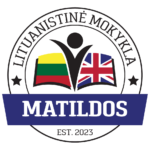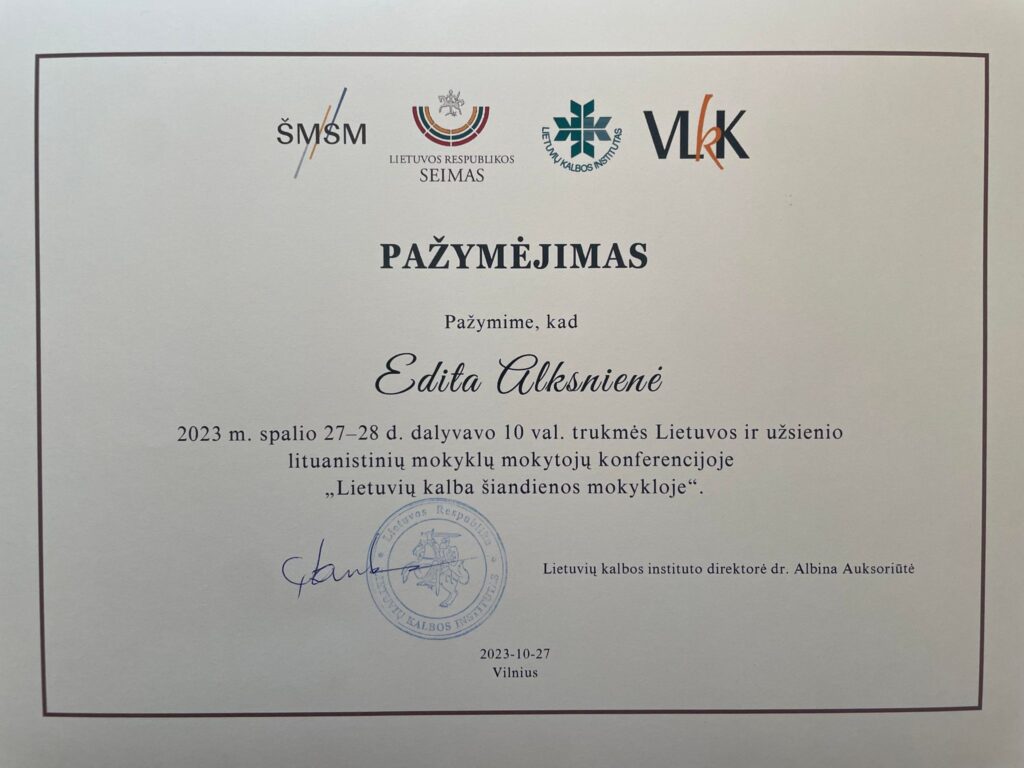What place do languages have in our lives?
-
by sabaliukena
- August 31, 2023
- 5:29 pm

We are interested in politics, in people's various deeds and adventures, but very few are interested in the human being himself, in the integral part of language, in what it means in the life of a person and a nation, in what it says about the human being himself. We all speak our mother tongue, we all learn our mother tongue at school for eleven years, and still not all of us can speak or write correctly.
We've been learning foreign languages at school for nine years since fourth grade, but not all of us learn enough to speak fluently with foreigners. Foreign language skills give people today more opportunities to communicate, to work and to study or live abroad, which many people find honourable and attractive today. We all try to teach our children foreign languages as early as possible, often even in kindergartens, without worrying whether it will be of much benefit to the child. We do not really know how and when a foreign language is best learned. So we will try to give a brief overview of these issues in this article. In our country, unfortunately, not everyone is aware that a foreign language is not music or art. Artistic skills are more easily developed in childhood, and music or art greatly enrich the child's spirit and self-expression, but early learning of a foreign language does not have such a positive effect on the child. The child's mother tongue is not yet rich enough, and here additional meanings are attached to the words of the mother tongue, which take up space in the child's memory and leave no room for other things that are more important for his development. If a child's memory is prematurely burdened with the words and structures of a foreign language, the mother tongue is impoverished. (This was observed by many primary school teachers in the Soviet era, when Russian was taught in the primary grades, and nowadays, when English is taught in the primary grades.)
Parents should be aware that, according to psychologists, a child who is overburdened too early exhausts his or her psychophysical strength and often fails to reach the level of development for which he or she was meant. They should be aware that a child's maturity and good command of his or her mother tongue are essential for the successful learning of a foreign language, and that a rich mother tongue is essential not only for the development of the child's personality, but also for that of the whole of the nation, which is made up of us all. It is very fashionable nowadays to use as many foreign words as possible, to sing in English, many pop bands flaunt incomprehensible names, young people write or sing songs in English - all the consequences of the worship of a foreign language and a culture that has long been inaccessible to us. The inter-war philosopher S. Šalkauskis argued that the appropriation of foreign cultural goods is only useful when a nation is able to appropriate them creatively, in its own individual style. The passive, slavish appropriation of a foreign culture overshadows the individuality of a nation. He considered an important task of national education to be "the cultural equipping of the nation so that it can stand tall in the competition between nations".
Vydūnas wrote that a nation will never disappear if its culture enriches world culture. We will only mean something to the world and to Europe if we develop our intellect and our culture to the highest level. Nowadays, the importance of the mother tongue for the personality and the nation has been completely forgotten. Language scholars have always argued that a child should be brought up in the mother tongue, that competition from foreign languages should be avoided until the mother tongue has been consolidated, because it is through the mother tongue and the ethnic culture that the child acquires the spiritual wealth and moral attitudes of the nation. Each language embodies a distinct worldview and determines the individual's thinking, behaviour, character and perception of the world, and protects the nation from extinction and spiritual poverty.
Read more: https://www.lrytas.lt/bendraukime/isklausykite/2009/02/06/news/kokia-vieta-kalbos-uzima-musu-gyvenime-5836111




